School Finances pre-1815
The school was built under Bishop Fox’s direction and in his deed of 1528 he left the rents from property in and around Grantham to Corpus Christi College, Oxford, for the Master’s salary and the maintenance of the fabric of the building. The Alderman and the Burgesses of Grantham were the Trustees.
It was the dissolution of the Chantries under Edward VI in 1547 that were the true endowment of the School. The Alderman and the Burgesses of Grantham were made the trustees of properties in Grantham, Great Gonerby, Manthorpe, Houghton, Spitalgate, Walton and Barrowby. A.F.Leach in “English Schools at the Reformation” writes “All Honour to John Dudley, …'85. He should be regarded as the true Patron Saint of the Grammar Schools of Grantham and Louth, etc …'85. By their wealth.. . we can measure the loss sustained by their contemporaries .. which were restricted to a fixed sum, adequate enough, in some cases, at the time, but long since shrunk into a miserable pittance.”
The total value of the estate was £14 3s 4d with a tax to the Government of 16s 8d .
[£1=20s, 1s=12d, 3s 4d is 1/6 of a pound, 13s 4d is 2/3 of pound and 16s 8d is 5/6 of a pound]
The Master was required to be able to teach Latin and Greek at a salary of £12 p.a.
The properties were rented to local traders and businessmen to provide an income. When a property changed hands it was common practice for an addition fee to be charged to the new tenant and it was quite possible for the rent to be re-negotiated.
By 1571 the Master’s salary had been increased to £18 13s 4d from which he was required to pay the Usher 13s 4d.
By 1634 endowed lands raised a total of £43 13s 9d and by 1637 they raised £45 12s 4d. The income from rents showed little change for 160 years; in this time the Master’s salary rose to £23 10s plus the £6 13s4d still being paid by Corpus Christi College. These were inflationary times. It is estimated that prices increased at least six fold during the 150 years to 1800. Also, during the eighteenth century, the surplus of income over expenditure from the school estates was paid to the town funds not the school.
In the mid-1600s Grantham School was of similar calibre to Stamford, Uppingham, Oakham and Rugby Schools. During the next 150 years the income of, for example, Uppingham School rose by 278% and that of Grantham fell. The salary of Uppingham’s Master increased by 166%; that of the Grantham’s increased by 80%. Whereas Uppingham and most other foundations were endowed with scholarships and exhibitions to the universities in their Charters, Grantham had no such endowments. The best scholars tended to move elsewhere and the best schoolmasters followed.
The most important contribution to the decline was the mismanagement of the Trustees, the Alderman and his Burgesses. For about 150 years the Trustees had been renting the estate properties on 21-year leases and renewing them at the same rent with no re-rental fee. Two citizens, William Dunhill and Thomas Simpson, complained that the ex-Chantry Charities were being mishandled and the case was placed before the Court of Chancery. The Court found in favour of the plaintiffs in 1808. Leading to the leases being cancelled and renegotiated, bringing a substantial increase in the school income. In 1815 the Alderman’s Court published a set of rules to replace those of 1571. One effect was to increase the Master’s salary. Joseph Hall died in 1814 when his salary was a mere £23 10s. The school has a copy of his will. His successor, Robert Gordon Andrews was appointed in 1815 at a salary of £150.







